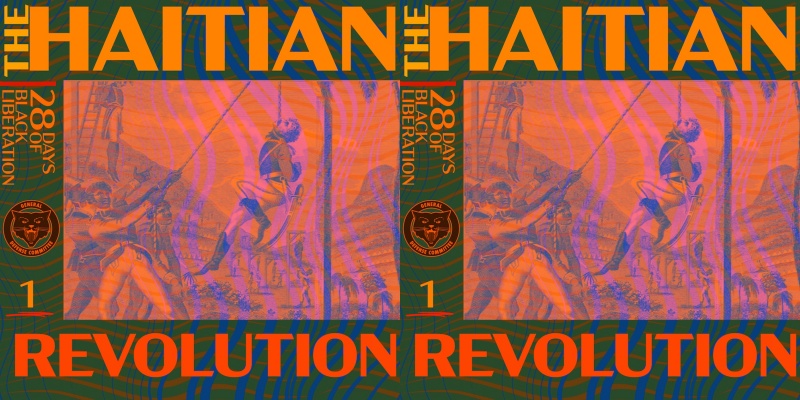Day 1 of the 28 Days of Black Liberation 2024 series
It is appropriate that our first day of “28 Days of Black liberation” highlights the Haitian Revolution. Mumia Abu Jamal wrote of Haiti:
It was a sweaty, steaming night in August, when a group of African captives gathered in the forests of Marne Rouge, in Le Cap, San Domingue. It was August, 1791. Among these men was Papaloi Boukman, His words, spoken in the common tongue of Creole, would echo down the annals of history, and cannot fail but move us today;
“The god who created the sun, which gives us light, who rouses the waves and rules the storm, though hidden in the clouds, he watches us. He sees all that the white man does. The god of the white man inspires him with crime, but our god calls upon us to do good works. Our god who is good to us orders us to revenge our wrongs. He will direct our arms and aid us. Throw away the symbol of the god of the whites who has so often caused us to weep, and listen to the voice of liberty, which speaks in the hearts of us all.”
In 1804, Haiti declared Independence, after defeating what was the most powerful army of the day: the Grand Army of France. With their liberation, Haitians changed history, for among their accomplishments:
a) It was the first independent nation in Latin America; b) It became the second independent nation in the Western hemisphere; c) It was the first Black republic in the modern world; d) It was the only incidence in world history of an enslaved people breaking their chains and defeating a powerful colonial force using military might.
What did Independence bring? It brought the enmity, and anger of the Americans, who refused to recognize their southern neighbor for 58 years. One southern Senator declared, “Our policy with regard to Haiti is plain. We never can acknowledge her independence.… The peace and safety of a large portion of our Union forbids us even to discuss. On January 1st, 1804, Dessalines would proclaim: “Never again shall colonist or European set foot on this soil as master or landowner. This shall henceforward be the foundation of our Constitution.”
Further Material:
CLR James: The Black Jacobins audiobook (Chapter1)
C. L. R. James interview on his book “Black Jacobins” (1970)
Haitian Revolution Reading List
In the United States, the Black liberation struggle is the vanguard of the revolutionary class struggle. Black resistance to white supremacy has been the catalyst for nearly all critical social ruptures throughout american history. White workers choosing an alliance with the bosses instead of siding with the rest of the working class is the primary roadblock to revolutionary anti-capitalism in the us.
The GDC celebrates the Black liberation struggle and draws inspiration and lessons from its proud history in our struggle for the new world we are fighting for. Join us every day this February as we celebrate Black revolutionary culture, political prisoners, international figures and struggles, and moments in direct action that guide us in our continued, collective fight for liberation!

